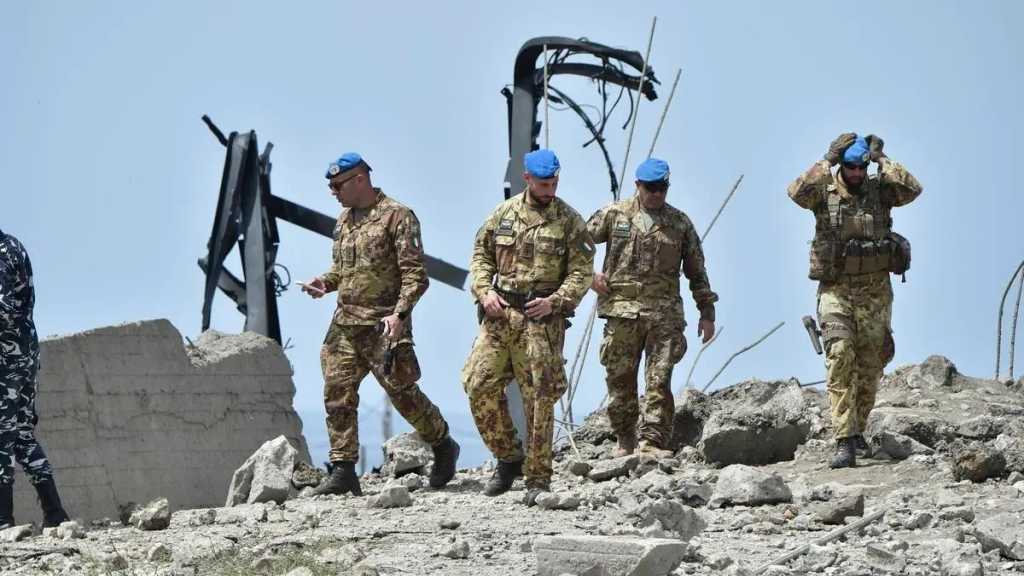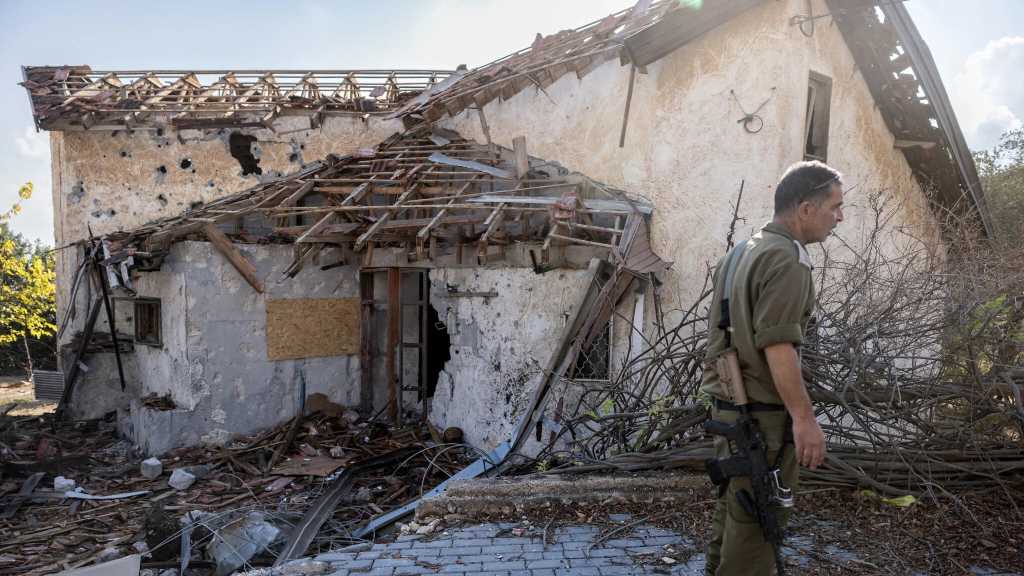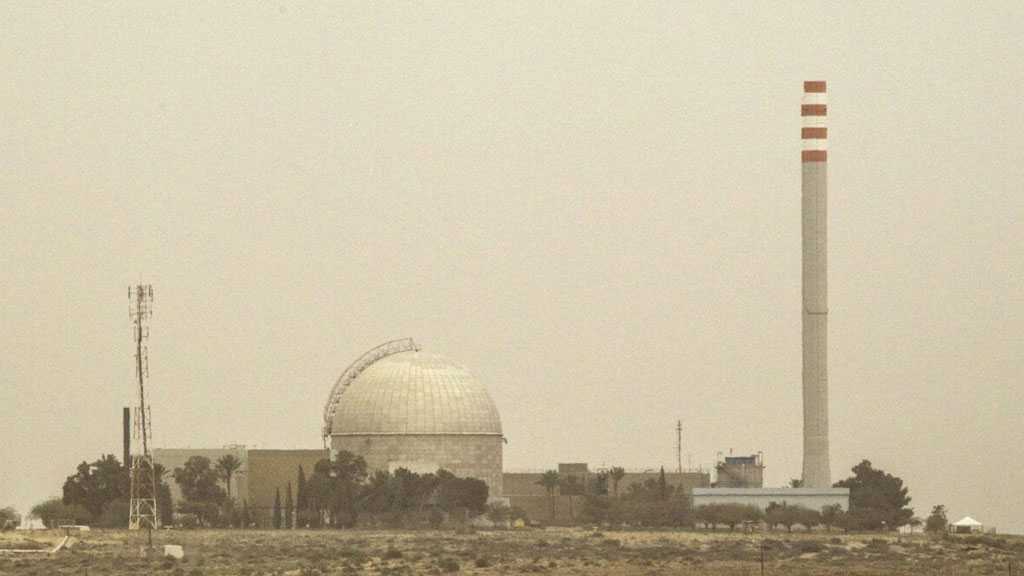“ISRAELI” VIOLATIONS OF INTERNATIONAL LAW WITH IMPUNITY

By Mohammad Hammoud
“Israel”, with strong backing from the United States, has repeatedly violated international law, including the bombing of United Nations [UN] bases, often with little or no consequences. The ongoing conflict between “Israel” and Lebanon has been marked by numerous breaches of international humanitarian law [IHL], which aims to protect civilians and safeguard human rights during armed conflicts. A particularly egregious example of this is “Israel’s” use of a UN military base in southern Lebanon as a shield, followed by its bombing—actions that directly violate IHL principles. This incident, though not the first in the long-standing conflict between “Israel” and Lebanon, underscores the critical role of international law in protecting civilians during armed conflicts when “Israel” is the perpetrator. This article explores the historical context of “Israel’s” actions and the implications of its recent military strategies.
Historical Context of Violations
“Israel's” history of military engagements is riddled with violations of international law. Since its founding in 1948, “Israel” has faced numerous accusations of targeting civilians, humanitarian facilities, and UN personnel, all of which are protected under the Geneva Conventions. One prominent example occurred during the 2006 Lebanon War when “Israeli” forces bombed a UN observation post in Khiam, killing four peacekeepers. The UN condemned the attack, stating that it was a clear violation of international humanitarian law, which mandates the protection of UN personnel and facilities.
Another significant event was the 1996 shelling of the UN compound in Qana, Lebanon, during Operation Grapes of Wrath, where over 100 civilians were killed. These civilians had sought refuge at the UN base, believing they would be safe under international protection. Despite “Israel’s” claims that the attack was a mistake, a UN investigation concluded that the shelling was deliberate, sparking international outrage.
Moreover, in its conflict with Palestinians in Gaza, the “Israeli” military’s bombing of UN facilities has been widely condemned as a violation of international law. Reports from the UN and various human rights organizations indicate that these attacks have targeted locations that are clearly marked and known to be used for humanitarian purposes, such as schools and medical centers. The deliberate targeting of these facilities not only endangers the lives of civilians seeking refuge but also disrupts essential services, exacerbating the humanitarian crisis in the region. Such actions are seen as breaches of the laws of war, which mandate the protection of civilians and civilian infrastructure during conflicts. The international community has called for accountability and an immediate cessation of these unlawful attacks to prevent further suffering and uphold the principles of international humanitarian law.
The Role of US Support and Impunity
“Israel's” frequent disregard for international law cannot be separated from the geopolitical dynamics at play, particularly its alliance with the United States. For decades, the US has provided “Israel” with significant military aid, advanced weaponry, and crucial political backing. Washington’s consistent use of its veto power at the United Nations Security Council has prevented formal sanctions or international actions against “Israel”, including calls for investigations into war crimes or breaches of IHL, allowing the entity to act with impunity.
Current Conflict and Recent Violations in Lebanon
In the ongoing conflict with Lebanon, “Israel” once again faces accusations of violating international law by attacking UN bases. On October 11, 2024, “Israeli” forces bombed a UN peacekeeping facility in southern Lebanon, resulting in casualties and extensive damage. This deliberate targeting of a UN site has raised alarms across the international community, with observers calling it an “extraordinarily concerning development.”
Legal Implications of “Israel's” Military Tactics
International humanitarian law, as outlined in the Geneva Conventions, is built on principles such as distinction and proportionality. The principle of distinction requires combatants to differentiate between military and civilian targets, ensuring that civilians and their infrastructure are protected. The principle of proportionality prohibits attacks that would cause excessive harm to civilians compared to the military advantage gained. By targeting UN facilities, “Israel” violates both principles, raising serious questions about the legality and morality of its military operations.
The Rome Statute of the International Criminal Court [ICC] further categorizes deliberate attacks on peacekeepers and humanitarian sites as war crimes, warranting international scrutiny and potential prosecution. Despite these legal frameworks, “Israel” has frequently escaped formal charges due to geopolitical factors, particularly the protection offered by the United States.
Conclusion: The Need for Greater Accountability
“Israel’s” history of bombing UN bases and violating international law underscores the hypocrisy of the global community, particularly the United States, which has been a staunch supporter of “Israel.” Despite “Israel's” extensive record of breaches against international law, the international community has never imposed meaningful sanctions on the entity. The recent attacks in Lebanon further illuminate the persistent challenges in enforcing international humanitarian law (IHL), especially when one party to the conflict operates under the consistent protection of a global superpower like the United States. As the situations in Lebanon and Gaza continue to evolve, it is imperative for the international community to intensify its efforts to hold “Israel” accountable, ensuring the protection of civilians and humanitarian workers while upholding the principles of IHL. Unfortunately, with ongoing US support, “Israel” is likely to persist in violating these critical international principles.




